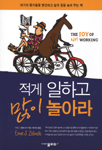
With about one-third of Canada's 33 million people born between 1946 and 1962, Canadians approaching retirement rresent the fastest growing demographic in the country.
Last year, Statistics Canada reported that the number of Canadians aged 55 to 64 -- those most likely to be thinking about retirement -- jumped by 28 per cent over the past five years to 3.7 million.
The good news is that 70 per cent of these so-called baby boomers are socking away money in retirement savings plans. The bad news, according to StatsCan, is that half of households with workers aged 55 to 65 have a financial net worth of less than $120,000. What this means is they can't retire at the same standard of living as they have had in their working years.
But Retirees need only 60 percent of working income, according to a Russell Financial Investment Canada survey. The Harris/Decima poll of 2,200 Canadian commissioned by Russell Investments Canada Ltd. found that currently retired people say they need only 60 percent of the income generated when they were working -- a stark contrast to a similar survey a year ago from Fidelity Investments Canada which found 80 percent or even higher "replacement ratios" might be necessary.
See retirement quotes about the Importance of Money in Retirement:



























